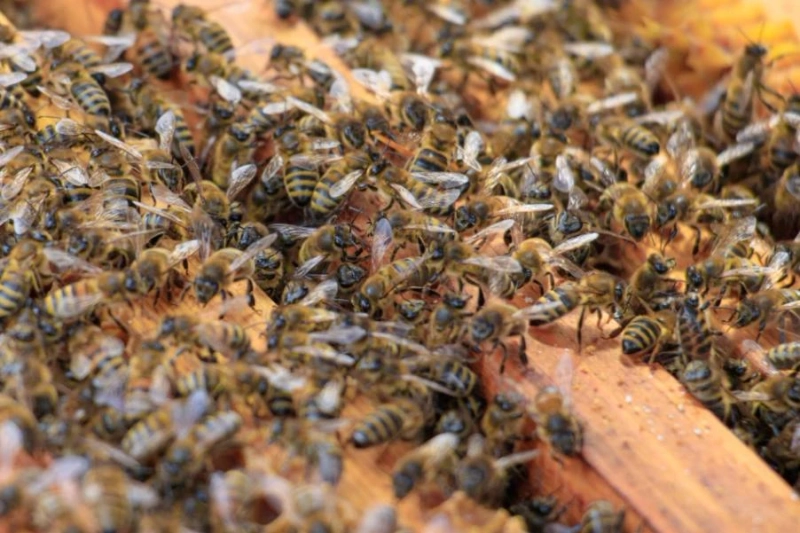Introduction:
In the ever-evolving tapestry of environmental attention, one topic constantly buzzes into the vanguard of sustainable living: honey bee-friendly gardening. As we study the demanding situations facing honey bee populations, the importance of individual involvement becomes paramount. In this article, we will explore the artwork of making a pollinator paradise for your personal outdoor space, emphasizing the importance of bee-friendly plant life and vegetation. Additionally, we'll delve into the symbiotic relationship among honey bees and the efforts of top natural honey and mustard honey exporters, highlighting how those key gamers contribute to the proper functioning of those important pollinators.
The Decline of Honey Bees:
Before we embark on our adventure to create a honey bee-pleasant lawn, it's critical to understand the challenges of dealing with honey bee populations. Over the past few decades, those industrious pollinators have experienced a great decline due to factors such as pesticide exposure, habitat loss, and weather exchange. This decline is alarming not only for the bees themselves but additionally for the worldwide environment, as honey bees play a pivotal role in pollinating an enormous array of plants that make up a good-sized portion of our diets.
Creating a Bee-Friendly Haven:
Now, let's delve into the heart of the problem—a way to create a garden that isn't only handiest and aesthetically fascinating but also a haven for honey bees. The key lies in choosing and cultivating vegetation that entices and supports these vital pollinators.
Choose Native Plants:Opt for local flowers that have developed along with neighborhood pollinators. These flowers are adapted to the neighborhood climate and offer the best nectar and pollen assets for honey bees.Plant a Variety of Blooms:
Aim for a diverse choice of flora that blooms at special times in the course of the developing season. This ensures a non-stop delivery of nectar and pollen, assisting honey bees at some stage in the 12 months.Avoid Chemical Pesticides:
Say no to chemical pesticides and herbicides, as those can harm not only the focused pests but additionally beneficial insects like honey bees. Explore organic options or incorporate pest control strategies.Provide water sources:
Honey bees need water for various purposes, including cooling the hive and diluting honey. Set up shallow dishes with fresh water and upload stones or floating gadgets to provide bees with a safe drinking spot.Create Nesting Spaces:
Incorporate bee-pleasant habitats, including bee inns, or actually leave a few regions of your garden undisturbed to permit ground-nesting bees to thrive.
The Symbiotic Connection with Top Natural Honey Exporters:
Now that we've protected the fundamentals of bee-friendly gardening, let's discover the imperative role played by top natural honey and mustard honey exporters in sustaining honey bee populations.
Supporting Sustainable Beekeeping Practices:Reliable honey exporters are committed to promoting sustainable beekeeping practices. By shopping for honey from such exporters, purchasers make a contribution to the monetary viability of beekeepers who prioritize the health and well-being of their honey bee colonies.Ensuring Quality Honey Products:
Top natural honey exporters prioritize the production of notable honey, making sure that the final product is free from contaminants and harmful materials. This commitment to quality not only benefits consumers but also displays the exporters' determination to ensure the general fitness of honey bee colonies.Promoting Biodiversity in Bee Forage:
Recognizing the importance of various weight-reduction plans for honey bees, reliable honey exporters often collaborate with beekeepers to promote biodiversity in bee forage. This collaboration allows for the creation of sturdy and nutritious surroundings for honey bees to thrive, ultimately benefiting the entire environment.Educating and raising awareness:
Leading honey exporters take an active role in instructing both purchasers and beekeepers about the significance of honey-bee-pleasant practices. This includes advocating for pollinator-friendly agricultural guidelines, helping studies on honey bee fitness, and raising awareness about the threats going through those important pollinators.
Conclusion:
In the end, honey bee-friendly gardening isn't always just a trend; it's a necessity for the survival of our ecosystems. By growing spaces that cater to the wishes of honey bees, we make a contribution to the preservation of biodiversity and make certain of the continuing abundance of the plants that sustain us. Moreover, the collaboration between devoted honey exporters and beekeepers plays an essential role in preserving the sensitive balance of our natural world. As customers, our selections count, and with the aid of assisting pinnacle natural honey and mustard honey exporters, we actively participate in the collective attempt to guard and nurture these crucial pollinators. So, let's roll up our sleeves, put on our gardening gloves, and create the buzzing haven that honey bees desperately want in our gardens.


